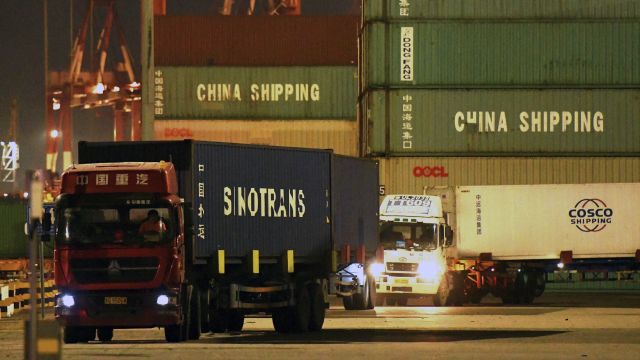The law, which will apply to all companies in China, was passed on Saturday by the National People’s Congress Standing Committee and will take effect on December 1.
Under the law, China can take “reciprocal measures” toward countries or regions that abuse export controls and threaten its national security and interests.

Export controls under the law will apply to civilian, military and nuclear products, as well as goods, technologies and services related to national security.
A list of controlled items would be published “in a timely manner” in conjunction with relevant departments, according to the law.
The new law allows Beijing to retaliate against the US, which in recent months has attempted to block Chinese technology firms such as telecommunications gear supplier Huawei, Bytedance’s TikTok app and Tencent’s messaging app WeChat on grounds of posing a national security threat, including the data they may hold from operating in the country.
Companies and individuals who endanger national security by breaching the new export control law, including those outside of China, could face criminal charges.

Violations of the law, such as exporting items without a permit, could result in fines of five million yuan (£578,038), or up to 20 times the business value of the illegal transaction.
The new law adds to the growing uncertainty of Bytedance’s deal to sell its video app TikTok to US firm Oracle Corp.
In August, China added technologies including voice recognition, text analysis and content recommendation to its list of regulated exports.
US President Donald Trump had earlier ordered Bytedance to sell its American operations of TikTok to a US firm or face a block in the country.
The new export control laws adds to China’s growing regulatory toolkit that allows it to take action against countries such as the US.







